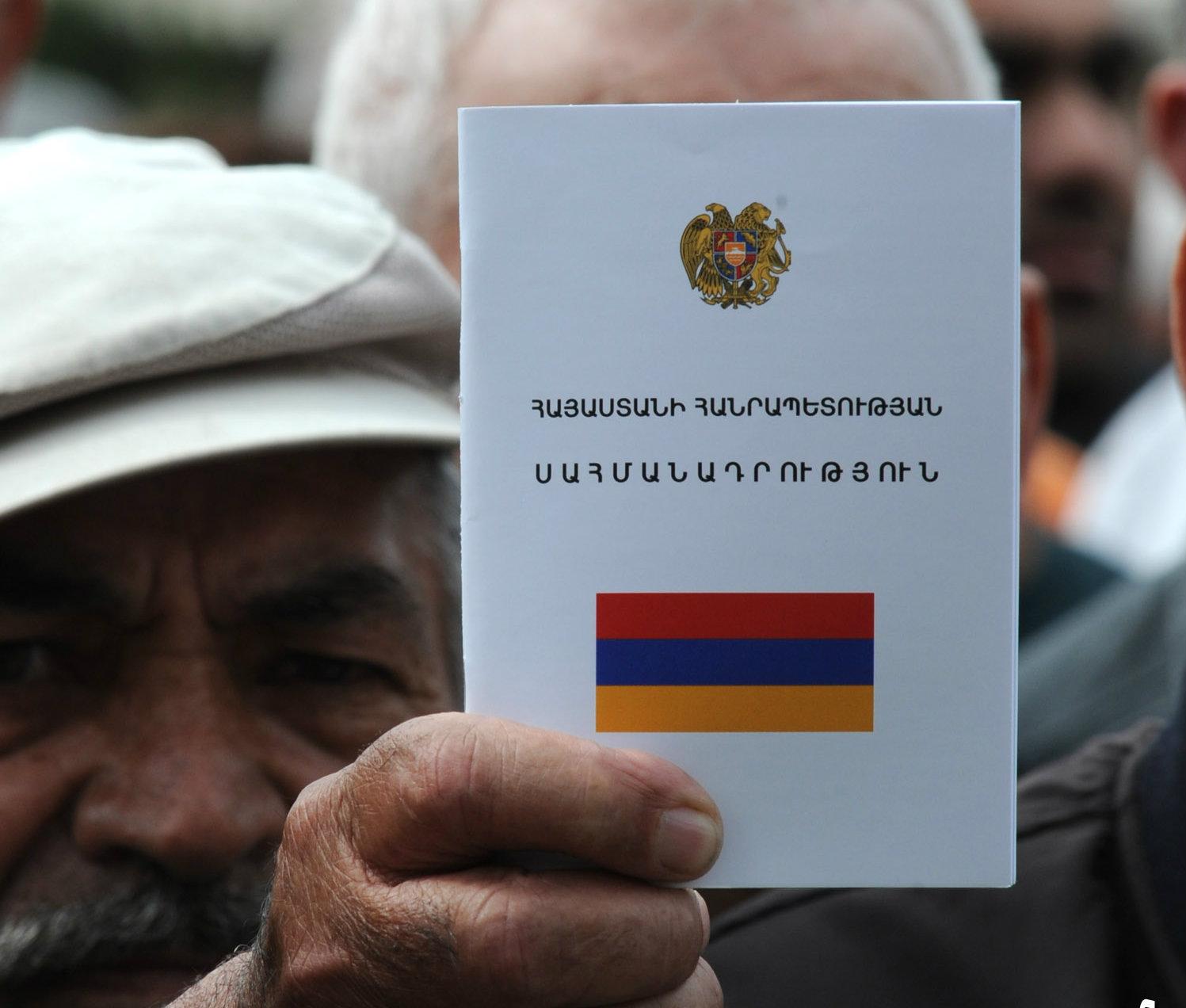Armenia's constitution stands in the way to peace with Baku Pashinyan's reluctance spells trouble
During a briefing with journalists ahead of the government session, Armenian Prime Minister Nikol Pashinyan made an intriguing comment regarding the peace process in the National Assembly: "The draft of the peace treaty is currently well-developed, and with final adjustments, it can be completed based on previously agreed and signed bilateral agreements. Regarding amendments to the constitution, I believe that attempts to bring this issue to the negotiation table undermine the peace process, potentially influenced by external interference and misinformation."
Thus, the Armenian Prime Minister withdrew his initiative to reconcile the ideal Armenia with the real Armenia. His earlier assessments of the challenges posed by provisions in Armenia's constitution to neighbouring countries seem to have been set aside. Nonetheless, it can be inferred, as previously discussed, that the primary reason for this shift is Pashinyan's aim, amidst protests over border demarcation, to demonstrate to the electorate that Yerevan does not consistently concede to Baku's demands.
Meanwhile, it's notable that Pashinyan is leaving himself some flexibility. "I discussed constitutional changes in 2018 and again in 2019, and our agenda is solely focused on democratic reforms. We've made it clear that constitutional changes cannot be part of the negotiations," Pashinyan stated. This suggests that, hypothetically, constitutional reform remains a possibility. If Pashinyan's primary objective is indeed to remove territorial claims to Azerbaijan from the constitution, mere amendments won't suffice; a new constitution would be required. Only then could the clauses pertaining to "miatsum" be justified.
However, this process takes time, thereby reducing the likelihood of signing a peace treaty this year. Naturally, Yerevan would prefer to circumvent the constitutional issue and celebrate a peace agreement with Azerbaijan triumphantly. Hence, there's been a flurry of statements suggesting that peace could be imminent. In this context, the Armenian side is once again positioning Azerbaijan as responsible for stalling the peace process, alleging interference in Armenia's internal affairs despite no apparent barriers to reaching a peace agreement.

It's evident to any observer that a significant obstacle exists. Baku's insistence for Yerevan to remove clauses asserting territorial claims isn't meddling in Armenia's internal affairs; rather, it's a request to cease interfering in Azerbaijan's internal affairs. Karabakh belongs to Azerbaijan, a fact recognized globally. To illustrate, consider if the Belgian Constitution included claims to territories in northern France. Clearly, such a scenario would be untenable.
Azerbaijan prioritizes the delimitation and demarcation process as a crucial step in the peace process, aiming to make progress wherever feasible. Indeed, this process is beginning to catalyze broader peace efforts. However, Yerevan's reluctance to address strategically significant issues such as legislative changes could potentially stall the delimitation process. This outcome would be detrimental to Pashinyan's goals, particularly in securing borders over Armenia's disputed 29,000 square kilometres. While Azerbaijan has no intention to initiate hostilities against Armenia, the absence of a clearly defined border, coupled with unresolved territorial claims in Armenia's constitution, casts Armenia in a negative light as a state potentially harbouring aggressive intentions towards its neighbours. This deadlock presents a significant challenge.
This is the predicament confronting Pashinyan. What he most critically lacks now is robust public backing — a chorus of voices from politicians, diplomats, experts, civil society representatives, and the diaspora. Had these voices supported Pashinyan's earlier initiative to amend the constitution, he might not find himself retracting his own proposals today. Without the clear civilian endorsement of necessary but bold measures, Armenian authorities risk repeating past patterns where their earnest efforts are lost amidst endless rhetoric.
Unfortunately, this scenario bodes ill for Armenia as a whole.








